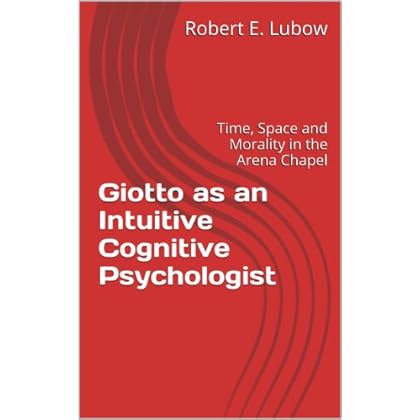Giotto as an Intuitive Cognitive Psychologist: Time, Space and Morality in the Arena Chapel
Category: Kindle Store,Kindle eBooks,Arts & Photography
Giotto as an Intuitive Cognitive Psychologist: Time, Space and Morality in the Arena Chapel Details
Giotto as an Intuitive Cognitive Psychologist: Time, Space and Morality in the Arena ChapelR.E. LubowBy the first decade of the 1300s, Giotto di Bondone, already the most famous artist in Florence, had completed his Arena Chapel masterwork in Padua. The frescoes, covering the interior walls of a family chapel, recount New Testament and Apocryphal stories that passed through three generations: Joachim and Anna, their daughter the Virgin Mary, and her son, Jesus. The scenes, including births and deaths, the Passion and the Resurrection, culminate in the breathtaking Last Judgment.Giotto's Paduan frescoes heralded a new realism. He brought biblical figures to life by creating depth on a flat surface and then deploying those shapes in space in such a way that they would be seen as being in motion, moving within a fresco, and even from one fresco to an adjacent one. More significantly, Giotto used the three dimensions of space as a framework to integrate the direction of movement with the perception of time, and with that he also linked spatial position and judgments of morality. Good is associated with up and/or to the right, and Evil with down and/or to the left. In regard to time, the past is signified by movement to the left, and the future by movement to the right, while a balance of directions induces a frozen moment in time. In brief, the Arena Chapel frescoes illustrate the operation of psychological processes that automatically engage the viewer's attention and resonate with the experience of dramas enacted in the real world. Based on sources that only recently have been made explicit by modern cognitive science, the present book examines how Giotto created scenes that tapped these elementary perceptual codes and moved medieval pious parishioners from a fictive world of icons to a naïve realism that was a first step to modernism, the Renaissance, and even later to the Enlightenment. Giotto's influential Arena Chapel frescoes were instrumental in shaping the new world view, one that could accommodate a Last Judgment as a work of art as opposed to only a terrifying admonition for rectitude. The story of Giotto's Arena Chapel frescoes, and how they reshaped the medieval mind, is told in the light of modern cognitive science research and illustrated by way of hyperlinks to his Paduan paintings and many others. The author, R.E. Lubow, studied at New York University and Washington State University, and completed his PhD at Cornell University. Since 1971, he has been at Tel Aviv University where he is currently Professor emeritus. The recipient of numerous research grants, he has published over 100 articles and chapters and three books. His widely cited research has focused on vision and attention. He is a Fellow of the American Psychological Association and the Association for Psychological Science.

Reviews


